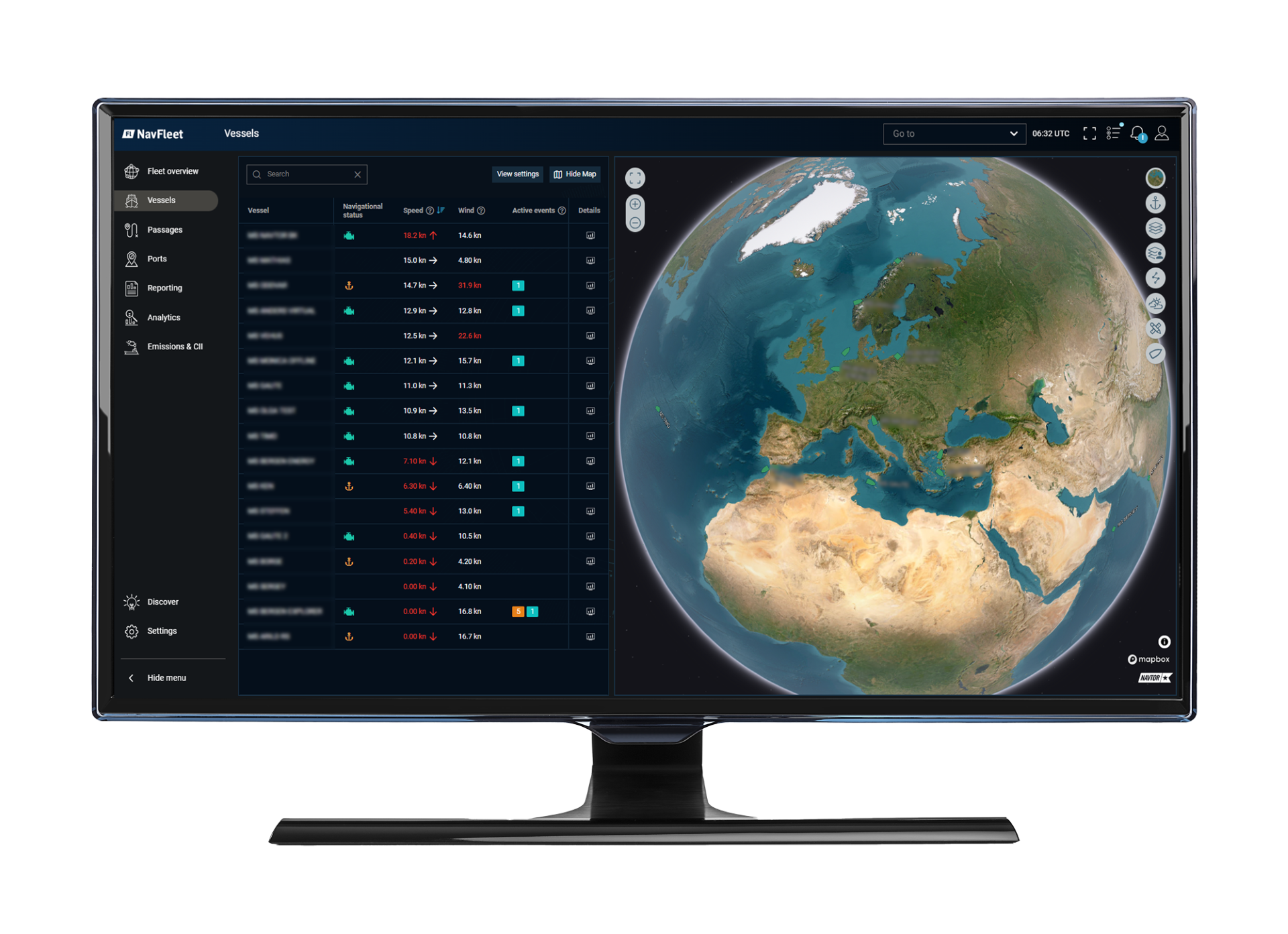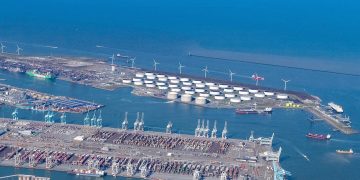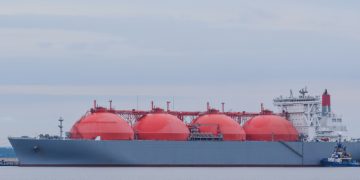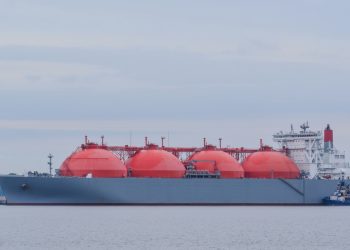The regulatory landscape is about to get a whole lot more complicated, with the advent of FuelEU Maritime from 1 January 2025. This ambitious framework, focusing on the ‘well to wake’ GHG intensity of vessels trading within Europe, laughs in the face of traditional methods of calculating and tracking emissions, making Excel sheets strictly yesterday’s news. However, there may be a simple way to voyage to compliance, argues NAVTOR’s Director of Performance Jacob Clausen.
The easy way to achieve FuelEU Maritime compliance for your fleet is simple.
You don’t do it.
I’m not suggesting you forget about this incredibly important, though challengingly complex, regulatory framework. That would be damaging – to both the environment, your finances (with stringent penalties) and business reputation.
No, rather that you allow an automated system to take the strain, collecting and validating the necessary data, at the optimal quality standard.
This could work to deliver not only compliance, but also far greater insights into energy consumption and performance, unlocking green benefits and powerful bottom-line advantages.
FuelEU in a nutshell
But before we get to solution, let’s assess the challenge. So, what is FuelEU Maritime?
In short, the regulations set strict requirements on the annual average greenhouse gas (GHG) intensity of the energy used by ships trading within the EU and the European Economic Area (EEA). This intensity is measured in grams of CO2 equivalent per megajoule (gCO2e/MJ), considering the full “well-to-wake” emissions pathway – instead of the old EU MRV “tank to wake” approach. In this respect it accounts for emissions across the entire lifecycle of the fuel, from extraction, to production, transportation, and usage onboard.
In addition, there’s a “dynamic” baseline for compliance.
The introductory benchmark has been set at 2020’s average well-to-wake intensity, which is 91.16 gCO2e/MJ. However, vessels will have to target a 2% reduction in 2025 (to 89.34 gCO2e/MJ) and aim for a 6% reduction by 2030. It’s an ever-diminishing emissions slope that tapers down to an 80% cut over the benchmark by 2050.
Now, what are the actual implications of this for you?
Early moves, bigger benefits
Aside from the core strategies your company has to tailor to comply – these will be as individual as your assets and operations – there are a couple of very obvious points to make.
Firstly, you need to think about this NOW. Secondly, you need a system way beyond an Excel sheet. And thirdly, you have to get the data right, in terms of both what you collect and its quality. Come up short on any of these points and there will be a (stiff) price to pay.
Starting at the beginning: Legally, compliance with the regulation comes into force on 30 April 2026, at which point 2025’s figures are digested. That seems like plenty of time… But to understand where your fleet performs in terms of GHG intensity you need insights now. Awareness of today’s operational reality informs the action that you take tomorrow, and the action you take then empowers that all important compliance. What’s more, FuelEU creates a new strategic impetus with regards to buying energy – with new fuel mixes and shore power, for example, moving up the agenda – so you need to plan a route to compliance. The longer you wait, the less options you have (you cannot buy fuel retrospectively), and that lack of flexibility, as every business knows, can be very, very expensive.
If you’re lucky enough to have a surplus, it also pays dividends to utilize it – through banking or pooling – and if you’re not you can perhaps borrow to avoid penalties. But, again, to get real business value out of this you have to have a strategy to optimize allowances. And strategic planning, of course, comes back to understanding where you are now.
Which you can no longer do with an Excel sheet.
Beware human error
Spreadsheets have had their place in their sun.
Sophisticated businesses, facing complex regulations, simply can’t rely on traditional methodology to comprehend and navigate the multi-dimensional requirements set by FuelEU Maritime (not to mention EU ETS, CII… the list goes on).
The scale of data and calculations required opens up wide panoramas for missteps, omissions and human error, with each wrong move potentially setting off a ripple capable of growing into a wave of regulatory pain.
To gauge your path forward, and truly understand your starting point, an approach based on manual inputs, outdated systems and half hearted “box ticking” simply will not Excel.
And this brings us to data – the foundation which compliance is built upon.
Meaning it has to be strong.
The devil’s in the data
Most importantly of all, you must ensure you collect all the right data.
Calculating GHG intensity across the entire lifecycle of a fuel is truly demanding. There’s a vast array of different criteria that have to be satisfied, with data from a multitude of different sources, that must be fit for purpose. Creating systems, and assigning responsibilities to do that, demands in-depth planning and resource allocation.
Which is absolutely necessary to get true data quality. Even if you have covered the bases and ticked the boxes, will that data be sufficient when it’s passed over to the verifiers? Or to meet your own detailed planning objectives? And what happens if issues are only discovered when all books are closed, and invoices paid – who foots the bill for compliance then?
It’s now time to take a breath and cut the complexity.
So, let’s assess how to voyage to that “easy” solution.

Machine earning
Understanding all the elements of compliance is vital to understanding why you don’t want to get tied up in it.
But why should you when you can let smart shipping take the strain?
Advanced digital solutions can take the myriad threads of data needed for FuelEU Maritime and weave them into one simple, satisfying fabric. One you can easily understand and, with that knowledge in place, control.
Find the right partner and you’ll find approaches that integrate all data within single smart shipping ecosystems and platforms, boasting automated data collection and reporting (no more Excel), backed by in-system validation, with further secondary validation from domain experts for optimal quality control.
Those same experts – available through the best solutions providers – should also be able to take a “consultancy” approach, helping assess the latest industry and regulatory landscape to provide added value to your strategic decision making.
The smart choice
I’m not suggesting it’s impossible to comply without a third-party digital solution tailored specifically for this task. If you train expert staff, devote resources, further develop IT, and constantly keep up to speed with targets, data and quality control you can do this without assistance.
But I come back to the point of why would you when you can choose a trusted partner to navigate the landscape for you?
A partner that doesn’t just help enable the compliance you, and all your stakeholders, want to see, but also delivers added value through a greater understanding of your energy use and costs, and how to make more informed fuel and performance decisions fleet-wide.
FuelEU Maritime is complex, and non-compliance carries strict penalties, but it is possible to automate the process and, with smart insights, make it work to your benefit. That can be easy with the right partner onboard.
The views presented are only those of the author and do not necessarily reflect those of SAFETY4SEA and are for information sharing and discussion purposes only.




























































